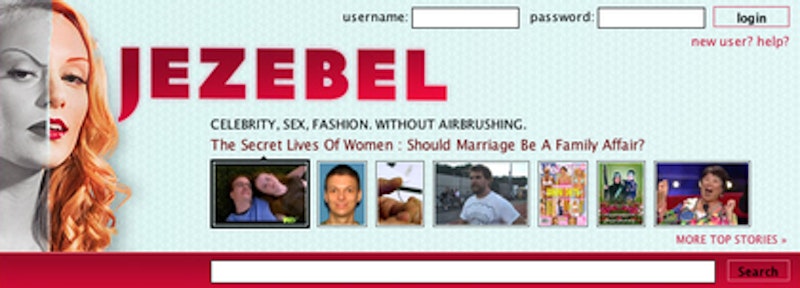I am fortunate to have a forum where I can offer my thoughts and ideas for public consumption, although that privilege comes with sometimes daunting consequences. The joy of seeing one's words in print is almost always accompanied by the fear that they will not be well received. It's a heady feeling waiting for my work to be posted on Splice, but the hours that follow, during which I carefully read the responses that begin cropping up soon afterwards, inspire much nail-biting and brow-furrowing.
There are perks, though: with the privilege of writing and the fear of being read, comes an unusual sense of power. For my friends, I am now the go-to girl whenever they have something that needs to be written about—an anecdote, a social or political issue, or a particularly offensive product like the ones I sometimes write about on my blog. One of the phrases I now hear most from my friends is, "You should really write about this…" Another common one is, "Don't piss her off, or you'll wind up in her next column." Yes, there is a sense of power that comes with having my writing published, but there is also an intimidating sense of responsibility for my own words and views.
That sense of responsibility is two-fold. Not long ago, two of the writers of Jezebel.com, a feminist-oriented website that runs stories on "celebrity, sex and fashion, without airbrushing," were interviewed on a TV show called Thinking & Drinking. The show, as its name suggests, encourages its guests to imbibe while they discuss a variety of matters and, during their interview, Tracie Egan and Moe Tkacik of Jezebel, quite inebriated, made some glib and imprudent comments about rape, sex and feminism. To call the interview "poorly received" would not begin to describe the uproar it caused. In the following days, a discussion arose about what it means to be a public figure and whether being a published writer who espouses a point of view or a set of ideas makes you a role model. Does writing about a set of ideas obligate you to live your personal life in accordance with them? Should you be excused if every now and then, you say or do something, which contradicts the ideas you've set down in writing? On this issue, I sided with Jessica Valenti, one of my favorite young feminist authors, who commented in the aftermath of that disastrous interview that, "by writing for a large audience, you are making yourself a public figure—and sometimes a role model."
I write for a varied audience. Does that make me a role model? Is being a role model something we have to willingly take on, or does it, as Valenti believes, happen without our consent, simply as a result of our public exposure? When people take my words to heart, which is the goal, am I in some way responsible for their newly formed or newly influenced beliefs? If so, am I also responsible for how they might behave based on those beliefs? And if writing for an audience automatically makes me a role model, what responsibilities do I have? These are questions that all writers must think carefully about.
And it's not just for our readers’ sake that we need to be careful about what we write; it's for our own good too. When a simple Google search can bring up everything you've ever published online, you need to choose your ideas and words very carefully. Employers, detractors and anyone else with a computer can access every word you've ever written in a under a heartbeat, even years after the fact. The result is that today, the chances of eating your words are higher than ever. While a lot of us dread the day that one piece, written in haste or in anger, will embarrass us or prevent us from getting hired, our integrity and reputations are also at stake.
We've all written things we know we will one day regret; that day might even be tomorrow. But perhaps there's hope for us as we begin to fill, whether by choice or otherwise, our important and intimidating positions as role models. After all, some of the best role models are the ones who made mistakes, who ate their words, and who emerged older, wiser, tougher and still admirable.

